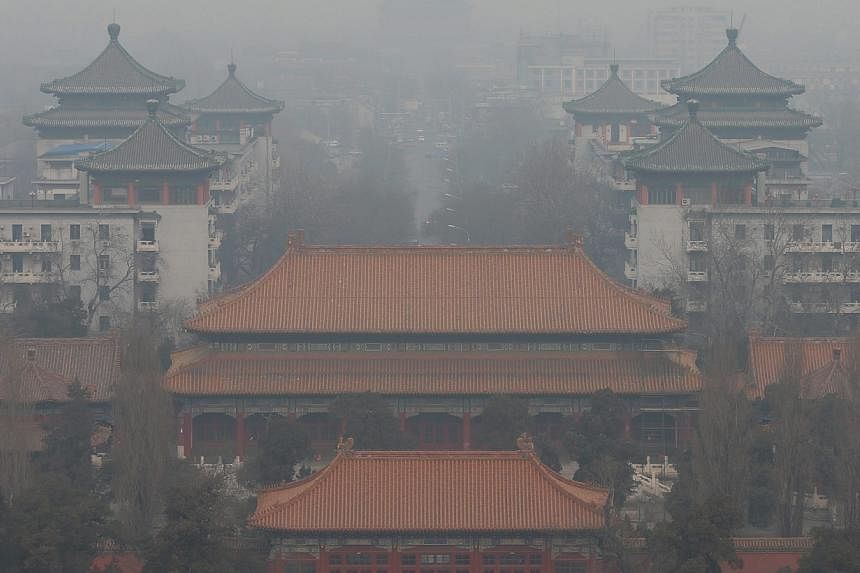BEIJING (AFP) - Pollution levels soared in Beijing on Thursday to readings more than 20 times WHO recommended limits, as an annual bout of intense smog returned to haunt the Chinese capital despite government vows to address the plague.
Levels of PM2.5 particulates - the smallest and most dangerous, with a diameter small enough to deeply penetrate the lungs - were recorded at 568 micrograms per cubic metre by the US embassy during the afternoon.
An even worse reading of 631 was recorded at a municipal monitoring station in the east of the city.
The World Health Organisation's recommended maximum is 25 micrograms per cubic metre.
China has for years been hit by heavy air pollution, caused by enormous use of coal to generate electricity to power a booming economy - the world's second largest - and more vehicles on the roads.
Beijing is periodically hit by choking, acrid haze, with particulate levels jumping far beyond recommended limits.
The phenomenon tends to be at its worst in winter, when demand for electricity rises for heating.
Authorities warned earlier this week of smoggy weather blanketing northern China, blaming calm weather as windy conditions tend to disperse pollution.
Thursday's spike - levels were beginning to reduce in the late afternoon - came almost exactly two years after an extreme bout of bad air in January 2013, dubbed the "airpocalypse", when state media reported readings at nearly 1,000 micrograms per cubic metre, almost 40 times the WHO's limit.
Public discontent about the environment has grown, leading the government to declare a "war on pollution" and vow to cut coal use in some areas.
China last year passed the first amendment to its environment protection law in 25 years, imposing tougher penalties on polluters.
Air pollution in the capital dropped slightly last year, the Beijing Municipal Environmental Protection Bureau announced earlier this month, although they still averaged 85.9 micrograms per cubic metre, more than three times the internationally recommended limit.

